A Historical Look at Baby Gifts: Traditions Around the World
Explore traditional baby gifts from around the world. Learn the unique meanings behind cultural newborn traditions and find a gift that carries deep dignity.
Emily Harper
4/10/202513 min read
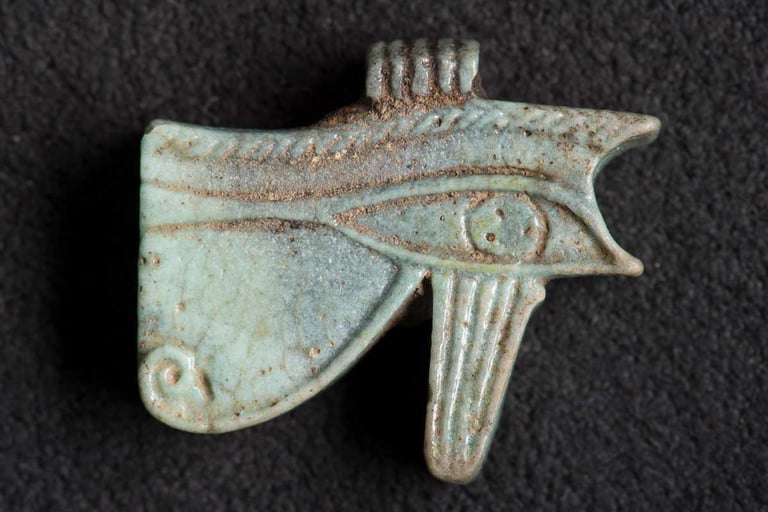

Introduction:
Baby gifts are a time-honored custom that spans cultures and ages. For centuries, people have given newborns special presents. Did you know that many cultures once thought baby gifts could scare off bad spirits? Discover the history of baby gift traditions around the world and how their meanings have changed.
Ancient Baby Gift Traditions: Blessings and Protection
Baby gifts have always held deep meaning, and throughout history, cultures have created unique ways to bestow blessings and protection on newborns. These gifts weren’t just meant to celebrate a new life; they were believed to safeguard infants from harm and ensure a prosperous future. Let’s take a journey through ancient traditions to see how different civilizations approached the sacred art of gifting to newborns.
Egypt, Greece, and Rome: Amulets and Protective Charms
In the ancient world, amulets and charms were central to protecting newborns. Egyptians, Greeks, and Romans all believed that the infant stage of life was especially vulnerable to evil spirits and misfortune. To shield babies from these forces, they were often gifted protective amulets—sometimes in the shape of animals, deities, or symbols of good luck. In Egypt, for example, scarab beetle amulets were common, symbolizing rebirth and protection. Similarly, in ancient Rome, parents might have gifted a "bulla," a locket-like charm worn by the child to ward off evil. These gifts weren’t just decorative; they were seen as crucial tools in the battle against unseen dangers. Isn’t it fascinating that the desire to protect children from harm transcends cultures and time periods?China: Red Eggs and Gold Jewelry
In China, baby gifts often symbolized both protection and good fortune. One of the most well-known traditions is the giving of red eggs—hard-boiled eggs dyed red, symbolizing fertility, life, and prosperity. Red is an incredibly auspicious color in Chinese culture, thought to bring luck and happiness, so gifting a red egg to a newborn was a way of blessing them with a bright future. Additionally, gold jewelry, like bracelets or necklaces, was given to infants as a sign of wealth and prosperity. These items weren’t just beautiful but also carried a heavy cultural significance, ensuring that the baby would grow up strong, healthy, and surrounded by good fortune. Don’t you love how even something as simple as an egg or a piece of gold could carry so much meaning?India: Silver Anklets and Bangles
In India, traditional baby gifts often included silver anklets and bangles, which were believed to bring protection and blessings to newborns. Silver was thought to have protective qualities, guarding the baby from the "evil eye" and ensuring their health and safety. These pieces of jewelry were not only pretty and intricate but were woven into the fabric of cultural rituals. In many families, it was customary for relatives to present these gifts soon after birth, hoping to shower the infant with blessings. It’s remarkable how something as delicate as a bracelet could represent both beauty and profound cultural meaning, don’t you think?
As we can see, across different cultures, the act of gifting to newborns went far beyond simple celebration. These gifts were steeped in meaning, offering protection, blessings, and a touch of magic for the future. In today’s world, we may choose modern gifts for babies, but isn’t it intriguing to think about the ancient traditions that laid the foundation for how we celebrate the beginning of life?
Medieval and Renaissance Baby Gifts: Wealth and Status
During the Medieval and Renaissance periods, baby gifts became a symbol of both wealth and status. These gifts weren’t just about protecting the infant or welcoming them into the world—they were carefully chosen to reflect the family’s social standing, religious values, and cultural heritage. Let’s explore how different regions and traditions contributed to the practice of gifting during these times.
European Aristocracy: Silver Spoons and Ornate Gifts
In European aristocratic families, baby gifts were often extravagant, a reflection of the family's wealth and status. One of the most iconic gifts was the silver spoon, which was traditionally given to newborns as a symbol of both abundance and nobility. Silver was expensive, so giving a silver spoon to an infant not only marked the occasion but also indicated that the family was wealthy enough to afford such an item. These spoons were often beautifully crafted, engraved with intricate designs, and sometimes adorned with precious stones or family crests. This tradition wasn’t just about the gift itself but also the status it conveyed. It’s fascinating to think that a simple spoon could represent so much about social standing, don’t you think?Christian Traditions: Christening Gowns, Religious Relics, and Godparent Gifts
In Christian cultures, baby gifts had strong religious significance, especially around the time of christenings. Parents would often dress their infants in elaborate christening gowns, which were sometimes passed down through generations, becoming family heirlooms. These gowns symbolized purity and the child's initiation into the Christian faith. Along with the gown, it was common for godparents to present religious relics or tokens, such as crosses or medals, which were thought to offer spiritual protection and blessings. These gifts were laden with religious meaning and were seen as essential in ensuring the infant's place in the faith. It makes you wonder: were these gifts more about the child’s future in the church, or were they a way to demonstrate the family's piety and religious standing?Scandinavian Customs: Handcrafted Wooden Cradles Passed Down Through Generations
In Scandinavian cultures, baby gifts often had a more practical yet deeply sentimental value. One of the most cherished gifts was the handcrafted wooden cradle, which was passed down through generations. These cradles were meticulously made by hand, often carved with intricate patterns or adorned with local symbols. Not only did these cradles provide a safe and comfortable place for infants to sleep, but they also carried the weight of family tradition. Passing down a cradle was a way of honoring ancestors while also ensuring the child’s place in the ongoing legacy of the family. There’s something really special about the idea of a baby sleeping in a cradle that has been in the family for generations, don’t you think?
In the Medieval and Renaissance periods, baby gifts were more than just tokens of affection; they were symbols of wealth, faith, and familial legacy. Whether it was a silver spoon to flaunt one's status, a christening gown to mark religious devotion, or a handcrafted cradle passed through generations, each gift told a story of a family’s place in society, culture, and tradition. Isn’t it amazing how these ancient practices still echo in the way we gift babies today, albeit with a more modern twist?
Indigenous and Tribal Baby Gift Practices
In many indigenous and tribal cultures, baby gifts have always carried profound spiritual and cultural significance. These gifts were not just meant to celebrate a new life but to honor the child’s place within the community, their ancestors, and the natural world. The practices vary across regions, but they all share a deep sense of connection to family, tradition, and the cycles of life. Let’s explore some of these rich and meaningful traditions.
Native American Tribes: Handmade Blankets, Cradleboards, and Spiritual Blessings
Among Native American tribes, baby gifts were often crafted by hand, reflecting the deep value placed on creating something meaningful and personal. One of the most significant gifts was the baby blanket—woven with care, often using symbolic patterns that conveyed spiritual protection and love. Cradleboards, which were wooden frames used to secure babies while they slept or traveled, were also common. These were more than just practical tools; they were believed to connect the baby to the earth, offering protection and guidance as the child grew. Spiritual blessings were also a key part of the gifting process. Elders or spiritual leaders would often bestow blessings upon the newborn to ensure health, strength, and a close connection to the tribe’s traditions and spiritual beliefs. Isn’t it beautiful how these gifts not only served a practical purpose but also carried the wisdom and protection of the community?African Cultures: Beaded Jewelry and Symbolic Animal Totems
In many African cultures, the gifts given to newborns were rich in symbolism, often designed to protect the child and offer blessings for a prosperous life. One common gift was beaded jewelry, which was carefully crafted and imbued with meanings related to protection, health, and good fortune. Beads were often made from natural materials like glass, bone, and stone, and each bead or color might carry a different significance. Another popular gift was symbolic animal totems—small carvings or figurines representing animals that were believed to offer protection, strength, or wisdom. For instance, a lion might be gifted to symbolize bravery, while an elephant could represent wisdom. These items were more than just decoration; they were viewed as guardians, watching over the baby as they grew. I find it fascinating how deeply these gifts were tied to the natural world and animal spirits, don’t you?Maori Traditions (New Zealand): Greenstone Pendants as a Connection to Ancestry
In Maori culture, the gift of greenstone pendants (or pounamu) holds profound significance. These pendants, made from the highly prized jade found in New Zealand’s rivers, were given to newborns as a way of connecting them to their ancestors and the spiritual world. The stone was often carved into shapes such as fishhooks or spirals, each design carrying a different meaning related to strength, protection, or harmony. The pounamu was considered a treasure that not only linked the baby to their family’s lineage but also symbolized the strength and unity of their community. It’s incredible how these beautifully crafted pieces served as both a personal gift and a tangible connection to the past. The idea of carrying your ancestry with you, from birth, is truly moving.
In these indigenous and tribal cultures, baby gifts were far from ordinary. They were symbols of connection, protection, and heritage—gifts that would carry deep meaning for the child throughout their life. Whether it was a handwoven blanket, a spiritual totem, or a greenstone pendant, these traditions remind us that gifts can be more than just objects; they can be vessels of love, wisdom, and continuity. Don't you think there’s something powerful in the way these cultures use gifts to instill a sense of belonging and identity from the very start of life?
Modern Baby Gift Traditions Around the World
Today, baby gift traditions continue to evolve, influenced by cultural practices, modern conveniences, and an increasing global connection. While some ancient customs have been adapted or integrated into contemporary celebrations, others remain deeply rooted in tradition, carrying a sense of legacy and meaning. Let’s take a look at how different cultures around the world celebrate new life today, and how their gift-giving practices reflect their values and beliefs.
Japan: Okuizome Ceremony – Symbolic Foods for Prosperity
In Japan, the Okuizome ceremony marks a baby’s first meal, typically held around the age of 100 days. This tradition symbolizes the infant’s first taste of solid food, which is a significant milestone in their life. The meal consists of symbolic foods such as rice, fish, and soup, each representing health, prosperity, and longevity. Family members gather to celebrate, and sometimes, grandparents or older relatives present gifts, often in the form of money or clothing, which are seen as blessings for the child’s future. The focus on food as a symbol of life’s essentials—nourishment, growth, and longevity—really makes me appreciate how food traditions can hold so much meaning, doesn’t it?Latin America: Baby Showers with a Cultural Twist
Baby showers in Latin America often combine elements of celebration with deeply spiritual or religious undertones. While the general idea of a baby shower, complete with games and gift-giving, is common, the gifts themselves frequently include religious tokens such as rosaries, crosses, or medals of saints. These items are intended to bless the newborn with protection and divine favor. Family and friends might also present traditional clothing, often handcrafted, or items for the child’s baptism. The focus on religion and community in these celebrations highlights the importance of faith and family in many Latin American cultures. It’s fascinating how these gifts symbolize not just material needs but a spiritual connection, don’t you think?Western Cultures: Registry Gifts, Baby Showers, and Keepsakes
In Western cultures, baby showers have become a staple of welcoming a newborn into the family. These events are typically centered around a registry, where expecting parents list specific items they need for the baby, ranging from diapers and clothes to cribs and strollers. It’s a practical way of ensuring that parents receive exactly what they need without the pressure of unwanted gifts. Additionally, keepsakes such as baby books, handprint kits, and memory boxes are popular gifts that help preserve special moments. These traditions are more modern, but they still focus on celebrating the baby’s arrival with a sense of community and love. However, I can’t help but feel there’s something a bit impersonal about registry gifts compared to the more sentimental offerings from other cultures. Are we losing some of that personal touch in favor of convenience?
In every corner of the globe, baby gift traditions reflect a blend of culture, spirituality, and practicality. Whether it's through symbolic foods in Japan, religious gifts in Latin America, or modern keepsakes in Western cultures, these traditions continue to serve as meaningful gestures that mark the beginning of a new life. What stands out to me is how each tradition, while different, carries a shared sense of celebration and care for the baby’s future. Isn't it amazing how these diverse practices all seek to convey the same universal message of love and protection for the next generation?
How Baby Gift Traditions Have Evolved Over Time
Baby gift-giving has come a long way from its ancient roots, where symbolic and spiritually significant gifts were the norm. Today, the tradition is shaped by a combination of practicality, consumerism, and evolving values. It’s fascinating how these shifts reflect broader changes in society. Let's dive into how baby gifts have transformed over time and the driving forces behind these changes.
Shift from Symbolic to Practical Gifts
In the past, baby gifts were often rich with symbolism, meant to protect the child or connect them to family and community traditions. While those gifts were cherished for their deep meanings, over time, the focus shifted more toward practicality. As modern parents have become increasingly involved in navigating the day-to-day demands of raising a child, gifts like diapers, clothes, and baby gadgets have taken center stage. While the thoughtful, symbolic gifts still hold importance, it's undeniable that practical items are now the go-to for most baby showers and celebrations. It makes sense—after all, every parent needs things like bottles, strollers, and cribs. But doesn’t it sometimes feel like we've traded deep meaning for convenience? Or perhaps, there’s room to merge both practicality and sentimentality, don’t you think?
Influence of Consumer Culture on Modern Baby Gifting
The rise of consumer culture has played a significant role in reshaping how we approach baby gifts. The explosion of baby-related products in the market has led to an overwhelming array of choices for gifts. Brands have capitalized on every aspect of baby care, from designer baby clothes to high-tech gadgets. Online registries and gift cards are now common, giving parents the flexibility to choose what they need from a broader selection. While this consumer-driven shift has made baby gifting easier, I can’t help but wonder—has it led us to lose sight of the deeper, more personal aspects of giving? Are we simply buying the latest trend because it’s available, rather than thinking about what will truly benefit the child or the family?The Rise of Ethical and Sustainable Baby Gifts
In recent years, there's been a noticeable shift toward more ethical and sustainable baby gifts. With increasing awareness of environmental and social issues, parents are now more inclined to give gifts that are eco-friendly, fair-trade, or locally sourced. Organic cotton clothing, reusable diapers, and wooden toys are examples of gifts that align with these values. Not only are these gifts better for the environment, but they also reflect a conscious effort to support ethical practices in the production of baby products. This trend is refreshing—it's heartening to see that baby gifts are being thoughtfully chosen with the planet and future generations in mind. I think it’s great that more and more people are considering the long-term impact of their choices. Wouldn’t it be wonderful if ethical, sustainable gifts became the norm for all occasions, not just for babies?
The evolution of baby gift traditions mirrors the changes in society—from practical needs taking precedence over symbolic gestures to the rise of consumerism, and now, the growing emphasis on ethics and sustainability. As much as modern gifts cater to convenience, I can’t help but feel that there’s room for both the old and the new to coexist. After all, isn’t the beauty of gift-giving in its ability to adapt to the times while still maintaining a connection to the past? What’s your take—are we on the right track, or is something important being lost along the way?
Conclusion
Baby gifts have always been more than just tokens of affection—they carry deep historical and cultural significance, whether in the form of protective charms, spiritual blessings, or practical items that meet the needs of a new family. From ancient traditions across the world to modern-day essentials, the way we give gifts to newborns has evolved, but the intention behind them remains the same: to show love, care, and protection.
Many of the age-old customs still influence today’s gifting practices, whether consciously or not. From symbolic blessings to practical items that ensure comfort and safety, there’s a rich tapestry of tradition that continues to shape our choices. And while practicality has its place in modern gifts, there’s no reason we can’t weave in meaningful cultural traditions to make those gifts even more special.
So, next time you're looking for a baby gift, why not consider adding a touch of history or culture? A handcrafted item, a symbolic token, or even a gift with ethical significance could make a lasting impact. After all, isn’t the best gift one that combines both practicality and meaning?


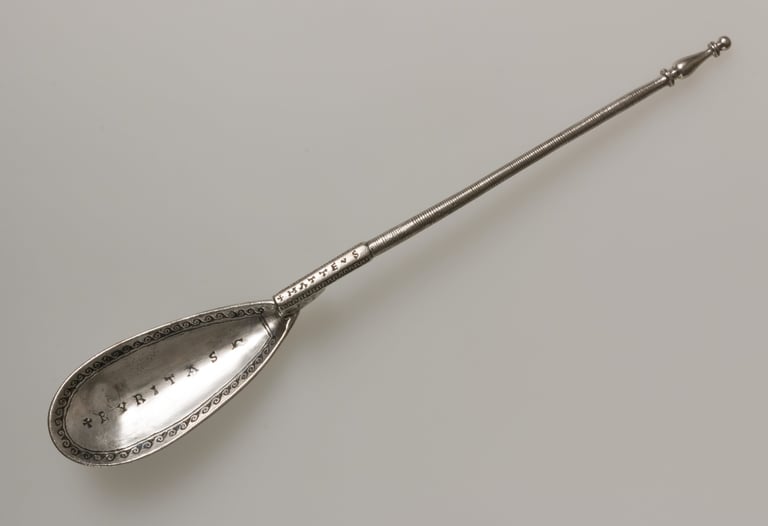

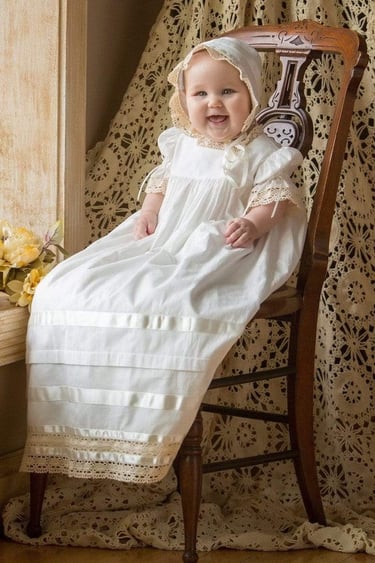

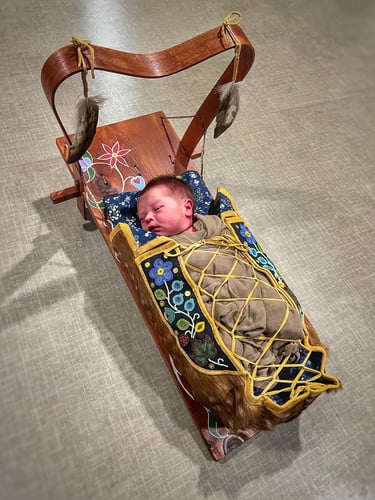

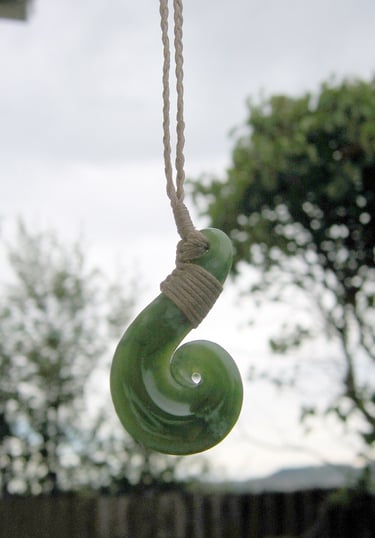

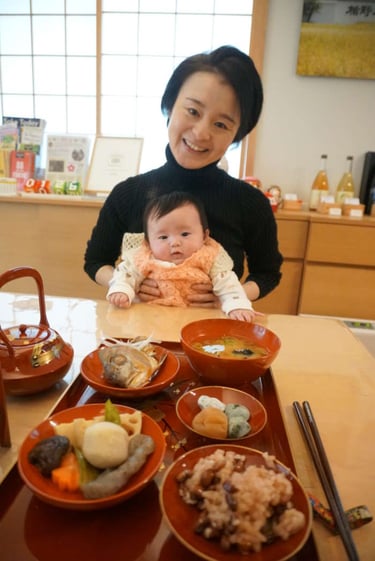



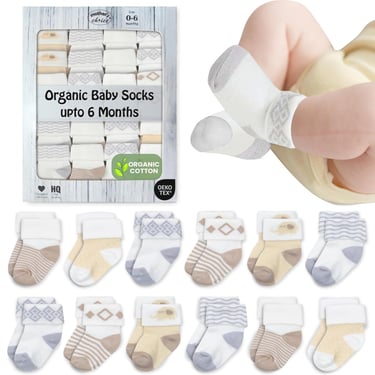

Related articles:
6-Week Baby Shower Planning Timeline: A Stress-Free Countdown
Co-Ed vs. Traditional Baby Showers: Which Is Right for You?
Baby Shower Gift Etiquette: Spending Tips & What to Buy
10 Creative Baby Gift Wrapping Ideas so Your Gift Stands Out
How Learning Toys Help Boost Development and Help Newborns Learn
